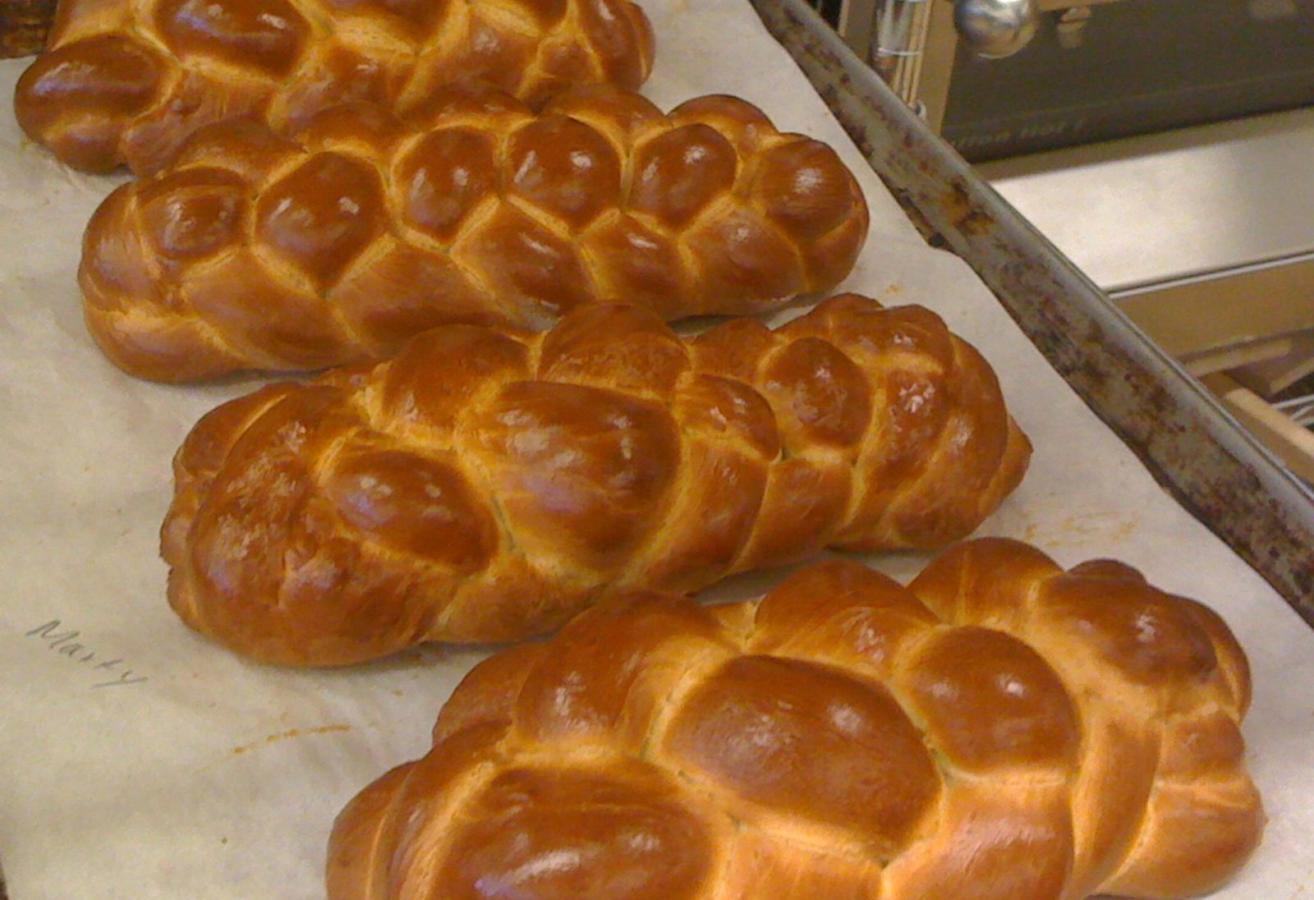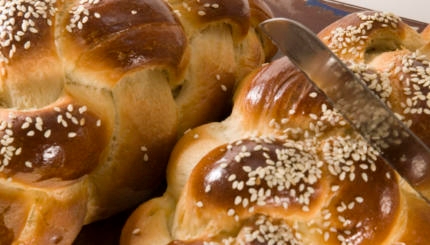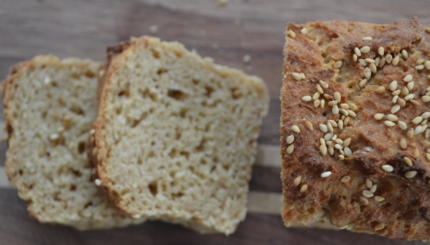We traditionally welcome Shabbat on Friday evening with Challah, the customary sweet braided bread. Why braided?
Twists and braids are mentioned several times in our Biblical text:
“Make gold filigree settings and two braided chains of pure gold, like a rope, and attach the chains to the settings. Fashion a breastplate for making decisions—the work of skilled hands. Make it like the ephod (a sacred vestment worn originally by the high priest) of gold, and of blue, purple and scarlet yarn, and of finely twisted linen.” (Exodus 28:13-15)
These beautiful adornments mark the priest as prosperous and worthy of honor.
But braiding is also associated with strength. Ecclesiastes 4:12 states, “Though one may be overpowered, two can defend themselves. A cord of three strands is not quickly broken.” The association of braiding with strength reappears in the story of Samson, “If you weave the seven braids of my head into the fabric on the loom and tighten it with the pin, I’ll become as weak as any other man.” (Judges 16:13) “After she made him sleep upon her lap, she called for someone to shave off the seven braids of his hair, and so began to subdue him. And his strength left him.” (Judges 16:19)
When we eat challah we are reminded of the beauty, honor, and strength associated with Shabbat.
But there’s a practical question: how many strands are included in this beautiful braided loaf? There are many traditions, although 3, 4, 6, 8 and 12 strands are the most common, and there are at least that many explanations for these traditions. Some say that because the strands look like arms intertwined, the loaf symbolizes love, consistent with Shabbat being the traditional time to make love.
Three braids can symbolize truth, peace, and justice… alternatively, the three braids are symbolic of the past, present, and future; the Patriarchs Abraham, Isaac and Jacob, or the three commands to observe Shabbat that appear in the Ten Commandments, “Zachor” – “Remember.” “Shamor” – “Guard.” and “b’Dibbur Echad” – “in one word.”
Four strands might refer to the Matriarchs, Sarah, Rebecca, Rachel and Leah… since it is usually the women who prepare the challah. Or, perhaps the four strands remind us that in the Jewish mystical tradition, there are four ‘worlds,’, or spiritual realms, existing simultaneously.
Six braids can represent the six days of the week leading up to Shabbat, intertwining our experience of the week, culminating in the beauty of Shabbat.
Eight strands might symbolize new beginnings and the future, as in circumcision on the eighth day after the birth of a male child.
There are several traditional explanations for using twelve strands. The most straightforward is that the strands represent the 12 tribes of Israel. Most of the time, there are two challah loaves on the Shabbat table (recalling the double dose of manna we received while wandering in the wilderness). Each individual challah loaf is generally oblong, resembling the Hebrew letter vav, which has the numerical value of six, so the two loaves would equal 12. Alternatively, they could refer to the showbread, the cakes or loaves of bread which were always present on a specially dedicated table, in the Temple in Jerusalem as an offering to God as described in Leviticus 24:5-6 “Take the finest flour and bake twelve loaves of bread, using two-tenths of an ephah (a particular measure for grain,) for each loaf. Arrange them in two stacks, six in each stack, on the table of pure gold before the Lord.”
However many strands are braided, twisted, and woven into the challah, eating it as part of welcoming the Sabbath symbolizes the weaving of our weekday mentality into a Shabbat state of mind, a braiding of the weekday mindset into a more sublime Shabbat-driven consciousness. May we enter each Shabbat in beauty, honor, and strength.




